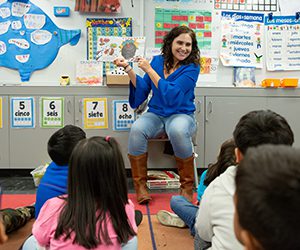Family Engagement State Policy Recommendations
State leaders play a key role in supporting districts and schools in engaging families in their work to support the social, emotional, and academic needs of their students.
State Board of Education Approves New Teacher Preparation Standards
The Texas State Board of Education (SBOE) approved a number of new standards adopted by the State Board for Educator Certification (SBEC) to better prepare aspiring Texas teachers regardless of their pathway into the profession
Making Assessment Reports More Meaningful for Students & Families
This report offers guidance on how schools can better communicate the results of students’ federally required annual tests so parents can be better informed about how their students are doing in school and work with educators to get appropriate support.
Model Individual Score Report for State Summative Assessments
The report demonstrates how to incorporate the design elements discussed in EdTrust’s report “Making Assessment Reports More Meaningful for Students & Families.”
How Student, Family, and Community Engagement Impacts Students’ Social, Emotional, and Academic Development (SEAD)
This report discusses how schools can better communicate with families, caregivers, and communities to support students’ academic development and overall wellbeing.
The Importance of Family Engagement
Authentic family and community engagement is a key strategy for improving students’ social-emotional and academic outcomes, but schools have a long way to go in making sure they are equitably engaging with all families.
Engaging First: Supporting Young Learners Through Family Engagement
This report is based on two nationally representative surveys, including 600 parents or caregivers of children in first or second grade in the 2022-23 school year, and 300 teachers of the same grade.
What are Automatic Enrollment (Opt-Out) Policies?
Automatic enrollment in advanced coursework policies, also called “opt-out” policies, are a potent policy lever to extend access to rigorous and potentially college-credit bearing courses for underserved students.




